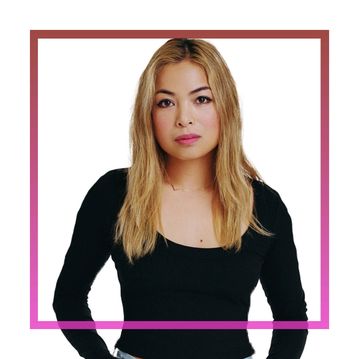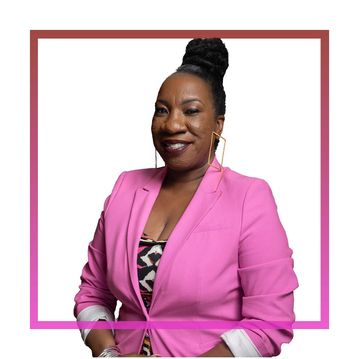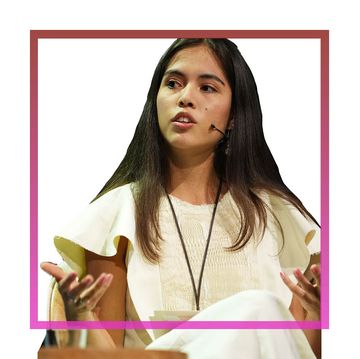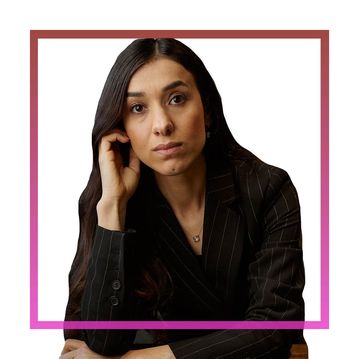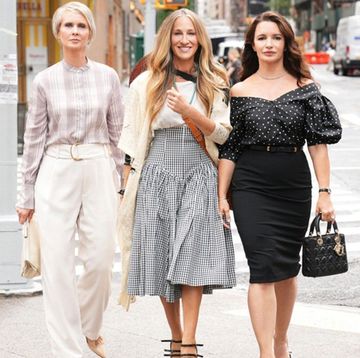Before 2017, progress felt like a big, abstract, nebulous thing to me; an idea. It wasn’t until I started fighting to make upskirting [taking photos under a person’s clothing without their permission] illegal in 2017 that I began to understand what change, on a structural level, meant.
I had been at British Summer Time, a family festival, when a group of guys took upskirt photos of my crotch. I took the guy, the phone and the picture to the police, only to be told I ‘wouldn’t hear much’ from them, as upskirting wasn’t a specific offence in England and Wales. I was angry and devastated by what had happened. I’d spent my teenage and young adult life being sexualised without my consent and I wished I had said or done something differently.
After the festival I decided to start a campaign asking why upskirting wasn’t a sexual offence. A few months in, I partnered with Ryan Whelan, a 29-year-old litigator, and we launched a political campaign, lobbying the government and MPs across all parties to back an amendment to the Sexual Offences Act and make upskirting illegal, eventually bringing in the Voyeurism (Offences) Act in April 2019.
It was two years of heartbreaking, tortuous work. I was dragging myself out of bed at 5am to answer messages from Ryan, strategise and do media interviews before work, and more than once I was caught crying in the office or throwing up from stress. I didn’t take care of myself throughout it, because on some level I thought that being a martyr for the cause meant I was doing it ‘right’.
The reality is that change is hard-won by regular, working people who feel they have run out of options; they need to see something shift because they’re exhausted by systems that continue to fail them. Gender-equality activists don’t jump out of bed each morning, pull on their pink suit, pump a fist in the air and shout, ‘Let’s smash the patriarchy!’ They plan, put in the hard, unglamorous hours, cry about spreadsheets, have difficult conversations again and again, lean on their community, celebrate the small wins, write press releases and ask for help when they need it.
When I changed the law in 2019, I realised how much power we all have; we live the problems day in and day out and are therefore best placed to offer a solution that actually works. Suddenly, a culture shift no longer felt like this huge, abstract thing but, instead, a series of small, considered actions that challenged the system enough that it had to bend, one way or another.
I also realised that affecting the law isn’t the biggest thing you can do: I now know you can go bigger by creating better systems. I’ve since worked for Nyome Nicholas-Williams to help change Instagram’s nudity policy that was censoring plus-sized Black women. My work has taken on a much more preventative angle: instead of criminalising actions, I want to figure out why they happen in the first place. I’m an ambassador for UN Women UK, which creates safer spaces; and for Beyond Equality, which engages men and boys in topics around gender equality and masculinities. My work is about encouraging one person at a time to question the thoughts they’ve inherited about these topics, and to challenge misogyny wherever they can, with whatever power or privilege they have.
This article appears in ELLE's September 2022 issue, on sale on July 28.




